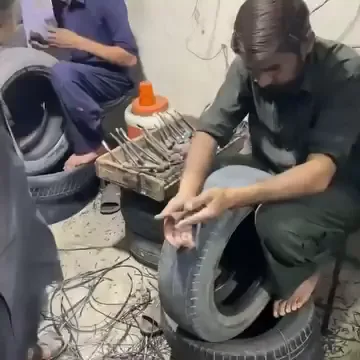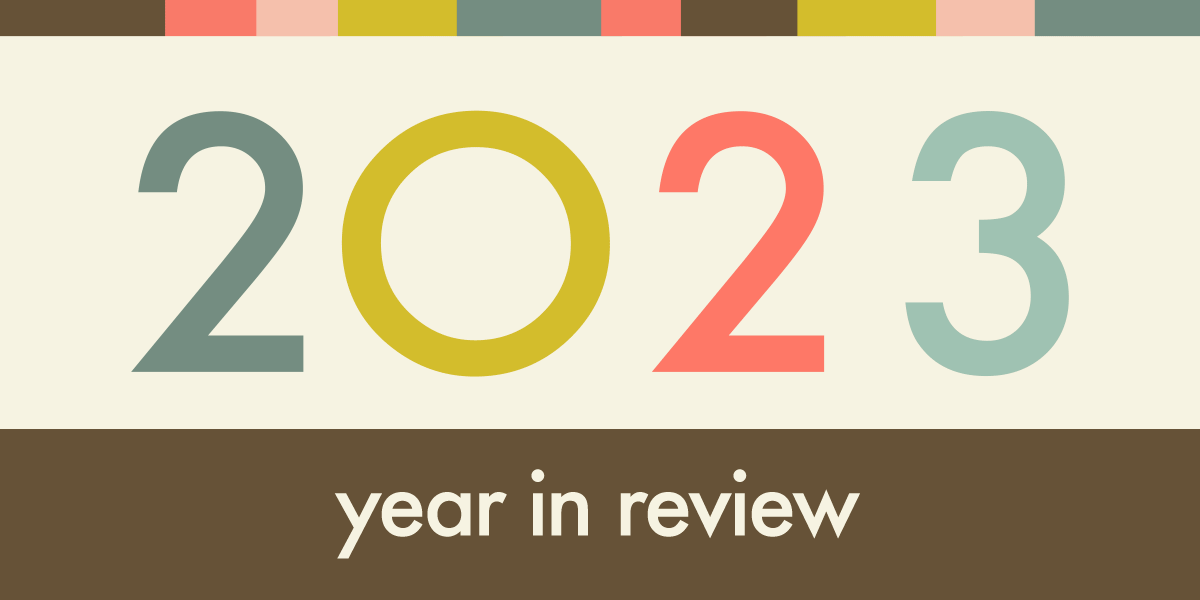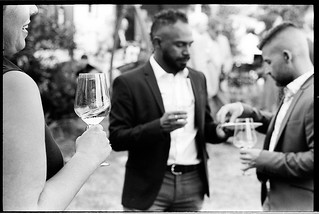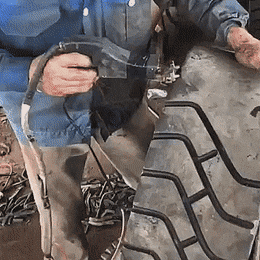#profile
Google’s Corporate Paternalism in The Browser
Electronic Frontier Foundation (EFF)
It’s a big year for the oozing creep of corporate paternalism and ad-tracking technology online. Google and its subsidiary companies have tightened their grips on the throat of internet innovation, all while employing the now familiar tactic of marketing these things as beneficial for users. Here we’ll review the most significant changes this year, all emphasizing the point that browser privacy tools (like Privacy Badger) are more important than ever.
(Text continues underneath the image.)
Chrome, the most popular web browser by all measurements, recently announced the official death date for Manifest V2, hastening the reign of its janky successor, Manifest V3. (...) [W]hat security benefits it has are bought by limiting what all extensions can do. (...) Put bluntly: Chrome, a browser built by an advertising company, has positioned itself as the gatekeeper for in-browser privacy tools, the sole arbiter of how they should be designed. (...) Google’s trackers are present on at least 85% of the top 50,000 websites. (...)
For what it's worth, Apple's Safari browser imposes similar restrictions to allegedly protect Safari users from malicious extensions. (...)
This is just another step in transforming the browser from a user agent to an advertising agent. (...)
Most recently, people with ad-blockers began to see a petulant message from Youtube when trying to watch a video. The blocking message gave users a countdown until they would no longer be able to use the site unless they disabled their ad-blockers. Privacy and security benefits be damned. YouTube, a Google owned company. (...)
Obviously this all sucks. User security shouldn’t be bought by forfeiting privacy. (...)
> Read other articles by EFF about the fight for digital rights in 2023
Tags: #internet #google #alphabet #chrome #youtube #trackers #privacy #browser #safari #apple #profile #profiling #Manifest_V3
Almost a Month on Diaspora now. Changing the way I use it.
It does take some time to learn how to use #Diaspora, and that's because Diaspora doesn't tell you how you're supposed to use it. You make it do what you want it to. And #tutorials are easy to find and use. That is not only very unusual for a social media platform, but it's also totally cool! Build your own, the way you like it! Building your own the way you like it takes time, though, and I think a lot of people are just in a hurry and not willing to take the time. So here are a few lessons learned in my first month on Diaspora:
Social media doesn't reflect how most people actually think and feel. It's a place where the people who make the most noise get all the attention. Most people aren't even on social media, and kids my age aren't on anything like Diaspora, and not many even on #Facebook anymore. It's all 10-second videos on TikTok or Snapchat, and 99.99999 percent of it is just "look at me, ain't I cute."
It's okay to use the #Ignore button, even though it seems bad to do need it. It's probably true that some people have blocked me too. I got really mad at some Diaspora people (do we call our selves "Diasporians" or something?) who said I was intolerant, bigoted, whatever because I don't accept and celebrate things that I think are bad. I blocked them, and they blocked me, probably. But that makes my experience - and theirs too I guess - better and just more enjoyable, by getting stuff that makes you angry out of your feed. Also, I got a PM from a stranger with no profile, just a picture. Not even a single post. But he/she/they says they want to do everything just in private chat. I think that's inappropriate with a kid and it's creepy. So the Ignore button is also maybe a safety thing.
#Markdown language is really cool! I could never do that on Facebook, but here I can #format my posts and even comments with italics, bold,
strikethrough, all kinds of cool stuff! It's just fun, and it makes my posts look nicer. I found an easy cheat sheet here that I use a lot.Do the #profile thing, please! When I get a private message or want to see what someone is about, more often than not all I see is a blank page with maybe an avatar and nothing else. It's probably a better experience for everyone if we all do our profiles so we get some idea of what people are into.
Again: It is worth taking the time to "build your own" social media experience. So if you are #newhere, just know that building your own is well worth the time, you'll meet some great people and we can all learn from each other.
𝓛𝓸𝓿𝓮,
𝓡𝓸𝓫𝓫𝓲𝓮

Lovely colour and a handsome profile shot. Blue tit is a welcoming sight in winter. Photo via: https://mymodernmet.com/best-photos-of-2022/
.
Unfortunately on January 15 the pod where my (this) Diaspora* account is hosted will close down. I’ll be back at diasp.nl.
Import of this account over there seems impossible. I will see how it goes at diasp.nl, there seem to be some differences between pods.
Tags: #diaspora* #pod #migration #profile #account #social_media
“How Dare They Peep into My Private Life?”
Human Rights Watch
Children’s Rights Violations by Governments that Endorsed Online Learning During the Covid-19 Pandemic.
On school days, 9-year-old Rodin wakes up every morning at 8 a.m. in Istanbul, Turkey. (...) By 9 a.m., he logs into class and waves hello to his teacher and to his classmates. (...)
Unbeknownst to him, an invisible swarm of tracking technologies surveil Rodin’s online interactions throughout his day. Within milliseconds of Rodin logging into class in the morning, his school’s online learning platform begins tracking Rodin’s physical location—at home in his family’s living room, where he has spent most of his days during the pandemic lockdown. The virtual whiteboard passes along information about his doodling habits to advertising technology (AdTech) and other companies; when Rodin’s math class is over, trackers follow him outside of his virtual classroom and to the different apps and sites he visits across the internet. The social media platform Rodin uses to post his homework silently accesses his phone’s contact list and downloads personal details about his family and friends. Sophisticated algorithms review this trove of data, enough to piece together an intimate portrait of Rodin in order to figure out how he might be easily influenced. (...)
This report is a global investigation of the education technology (EdTech) endorsed by 49 governments for children’s education during the pandemic. Based on technical and policy analysis of 164 EdTech products, Human Rights Watch finds that governments’ endorsements of the majority of these online learning platforms put at risk or directly violated children’s privacy and other children’s rights, for purposes unrelated to their education. (...)
Most online learning platforms installed tracking technologies that trailed children outside of their virtual classrooms and across the internet, over time. (...)
Children are surveilled at dizzying scale in their online classrooms. Human Rights Watch observed 146 EdTech products directly sending or granting access to children’s personal data to 196 third-party companies, overwhelmingly AdTech. (...)
Tags: #education #school #online_learning #tracking #trackers #tracking_technology #adtech #edtech #privacy #data #data_mining #profiling #profile #children #personal_data #surveillance_capitalism
New Friendica Profile
#Friendica #Profile #Contacts
Hi guys! I have a new Friendica profile called fractalman237@libranet.de since it seems that social.isurf.ca is no longer available. Please add that profile as a contact if you wish to keep in touch and I'll add you back. Thanks.
A Little Baltimore Camera Repair Shop That Survived the Digital Revolution
![]()
![]()
If you live outside of Maryland, you've probably never heard of Baltimore Photo-Electronic Services.
The little brick-and-mortar shop is tucked away in a run-down strip mall in the bustling Baltimore suburb of Pikesville, MD. If you drive past it on traffic-laden Reisterstown Road, BP-ES gets lost in the visual clutter of corporate signage that has come to surround it in the last 25 years.
BP-ES has no social media presence and their Web 1.0-style site seems to have finally evaporated from the internet. The only way to find BP-ES electronically is via customer comments on review sites. And the only way to be certain if they'll be open when you stop by is to call ahead. Fortunately, the phone number has never changed.
There was a time that BP-ES sought the attention of the outside world though. Artifacts exist in the form of faded old signs covering windows, proudly advertising a complement of technical services represented by peeling graphics of obsolete technology; a floppy disk CRT computer, a fax machine, a reel to reel player, and, of most interest to me, 35mm cameras.
![]()
BP-ES is not far from the old Bradley Images studio where I got my first photography job. Photo labs like Cooper's Camera Mart that printed my early exhibition images and The Shutterbug where I bought my first twin-lens reflex long ago disbanded, their properties swallowed up by larger businesses.
Being here in Pikesville again reminded me of an entire photographic ecosystem -- picking up equipment, driving to synagogues and hotels for shoots, dropping off the film, and picking it up once I got the call that processing was done. Reviewing negatives on light tables and sharing prints face to face with clients. Taking handwritten checks, driving to the bank for deposits. Stopping for food at Lenny's Deli or Fields diner. I've parked every car that I've ever owned in these spots -- with another photographer, a curious girlfriend, then wife, and then kids.
![]()
I had returned to my old stomping grounds because two of my manual focus, 1980's Nikon lenses had developed tight aperture rings during the last several shoots. As I pulled the door open and heard that familiar electronic chime, I wondered how my 20-year-old self would react to my 40-year-old self coming in here wearing a surgical mask to protect from a pandemic.
I learned about BP-ES when, as the new guy at the studio, I was tasked with dropping off 1960's Hasselblads that got thrashed within inches of their lives documenting local weddings and mitzvahs each weekend. My coworkers referred to the proprietor only as "The Russian."
Seldom have I entered the shop when it wasn't abuzz with discussions, negotiations. But today, BP-ES was quiet and empty when the stocky gentleman emerged from the repair room. He put on his mask and greeted me warmly in his thick accent. I plopped my Nikon 105mm 1.8 and 35mm 1.4 on the front counter for his inspection. As we talked, I looked around the shop to see what cool cameras were for sale. There is this glass display case where the best stuff is always kept.
![]()
Back in college, I told my friend Joe about BP-ES when he was looking to buy his first rangefinder. The Russian offered Joe a Canonet for $60 and Joe tried to haggle for $40.
The Russian promptly took the Canonet from Joe's hands and put it back inside that glass display cabinet. But that's when we then noticed a Leica M3.
There was no way that he would allow some broke college kids to handle the Leica, leaving us to stare at the coveted rangefinder in awe from the other side of the glass. We gawked, poised to receive whatever enlightenment that being in the presence of such an instrument might offer. The Russian leaned in over our shoulders like Robin Williams in Dead Poets Society. Concisely he stated, "This is camera for life."
Joe ended up buying a new Voigtlander Bessa R2 and at some point, I learned that "The Russian" actually goes by Lev.
It would be another 15 years until I could actually afford to buy a Leica from BP-ES. And I now use it daily. I remember Lev gave my daughter a lollipop and told her, "Your dad is the only one who still uses these old cameras." I don't think that's entirely true but she laughed, probably because she often thinks the same thing.
![]()
The issue with my Nikkor 105mm 1.8 and 35mm 1.4 seemed somewhat subjective, I feared Lev wouldn't see what I was talking about. My concerns quickly evaporated as he winced in acknowledgment of the problem.
"Oh yes, that's no good."
I mention this because when he doesn't see an issue, Lev will be honest and tell you there's nothing to repair.
Recently, Tim, a buddy of mine, brought Lev a Leica R4 whose shutter he suspected was not accurate. Lev showed Tim that the camera was within spec according to a shutter tester and didn't even charge him for inspecting it.
![]()
Lev works on modern cameras too. My wife's Nikon D600 had an expected life of 150k shutter cycles but Lev kept it going through 275k, long after the paint had worn down to the magnesium alloy and it moved from her primary to her backup body.
It's hard to add up all the shows, publications, and jobs I've done using cameras and lenses that Lev has repaired for me. I bought a Nikon FM here that I later photographed Sonia Shah and Bill Clinton with. There was the FM2n that I used to photograph Matt and Kim and countless photos of my kids, the Retina IIIc that covered Bob Giraldi production stills, several Pentax K1000s, numerous lenses, and my wife's Nikon DSLRs from the D90 to the D600 -- all serviced here. Sometimes I give Lev copies of magazines that our photos are in. I don't know what he does with the magazines or if he even likes the photos; he doesn't show much sentimentality. But I like him to see that he has an impact.
Lev updated my contact information and typed the lens serial numbers into his ancient yellowing Commadore computer while I eyed up a black Nikkormat FTn in that same glass cabinet that the Leica was inside years ago. I picked through a pile of little hoods, filters, and caps on a shelf while the old dot matrix printer creaked and buzzed in the background. I signed the print-out and Lev ripped off the carbon copy for my records.
![]()
A week later I returned to BP-ES to find my old Nikon lenses working beautifully. Clicking through the smooth aperture settings reminded me why I love the haptics of the old manual lenses. It looks like he cleaned the interior glass also. The 35 in particular is now perfectly spotless. As Lev was running my credit card, I remembered an old chrome 32mm Voigtländer lens hood that I noticed on the shelf last week. Nothing has prices on it so I readied myself for a possible negotiation and placed the hood on the counter. Lev eyed it up for a moment and said, "For you, this is gift." Maybe he was sentimental after all? Or maybe he'd already run my card and didn't feel like paying another service fee. Either way, I am grateful.
![]()
Along with mechanical cameras themselves, little repair shops like BP-ES are disappearing all the time. A number of similar shops I've dealt with previously just aren't around anymore. The owners, with their forgotten knowledge, experience, and skills retire when they can no longer continue or the work simply becomes unprofitable.
And yet, Baltimore Photo-Electronic Service survived the digital revolution that ended the local labs. It survived the rise of online shopping that ended the local camera stores. And now it appears to have survived COVID-19 that ended numerous small businesses.
Some people might not care much about what's happening at 1726 Reisterstown Rd. Most folks seem to use modern cameras for a few years and then replace them, more or less for vanity. There's no need for, or pride in, maintaining them because they are built and treated as disposable, transient objects.
For me, and probably for many of Lev's customers, being able to keep using equipment that we've been using for decades, that has our own little victory images psychically imprinted in them is not just an exercise in stubbornness and nostalgia (though that is surely part of it!) These cameras are important components of our personal history and our art. Perhaps even our belief systems.
I mean look, what is a camera if not a memory machine? A camera doesn't just take images of memories but also by being in hand, carried through one's life and experiences, being ready whenever it is called upon, the camera itself is a key part of a continuing story. An old camera is a recurring character in the story of our lives, past, present and even, future.
I took the photos for this article with a Nikon FM2n that Lev quickly repaired for me when it failed just days before a close friend's wedding and a 50mm 1.8 that Lev sold me in 2003.
![]()
About the author : Johnny Martyr is an East Coast film photographer. The opinions expressed in this article are solely those of the author. After an adventurous 20 year photographic journey, he now shoots exclusively on B&W 35mm film that he painstakingly hand-processes and digitizes. Choosing to work with only a select few clients per annum, Martyr’s uncommonly personalized process ensures unsurpassed quality as well as stylish, natural & timeless imagery that will endure for decades. You can find more of his work on his website, Flickr, Facebook, and Instagram.
#culture #baltimore #camerarepair #johnnymartyr #profile #repairshop
Mkay people .. i think it's time to make my migration official.. While i'm still not completely happy with my new residence at , im actually anyways more online there as i'm here now.
So ... please let it be known that from now on, my primary #fediverse #profile and residence will be at @hackbyte (friendica).
Many many thanks to @Di Cleverly and @David Thiery for running this service, i very much appreciate it in the past and in the future .... and when some day some funding round might come up, i will still chip in a bit for what i got from you in the past.
Luckily, because we're on the fediverse, this will not be a good bye for good, but just ... a migration to another profile.
So ...... see ya, back on the #fediverse and the greater #federation.
@hackbyte (friendica)
P.s.:
This account will neither be closed nor abandoned at all .... i'm just looking more trough another window, having this place still in sight. ;)
This is my Friendica profile
#SocialMedia #Friendica #Federation #iSurfSocial #Profile
In the advent that Pluspora is shut down, I'll be using the Friendica profile linked below. Anyone who is interested, please add me to your aspects/groups.
via @The Artist formerly known as JP, OK I like it.
Why Do We Wear #Masks?
We cover our faces and conceal our appearances for the simple reason that we have no need to be identified. In this world where cameras sit on every other street corner, where the police, #CSIS and #RCMP use every chance to #profile us and to build up files on our activities, where participation in #socialstruggle or public #demonstrations can compromise our #freedom and ability to act in the future, we see no reason to make their jobs easier for them. Just as we refuse to cooperate with police #interrogations and police #investigation, we’re also going to make it as hard as we can for the systems of social control to crack down and break us. Developing a practice of (partial) #anonymity in situations we choose opens up space for participating in actions for folks who would otherwise be risking too much be it #legal status, #immigration status, or #employment. Not only does it make profiling more difficult, but it also helps to keep people out of police custody. Wearing masks won’t get us home safely all the time, but it does disrupt routine repression and social control.
It is time we break them Instead of letting them break us!
Posted from #PugetSound #Anarchists









